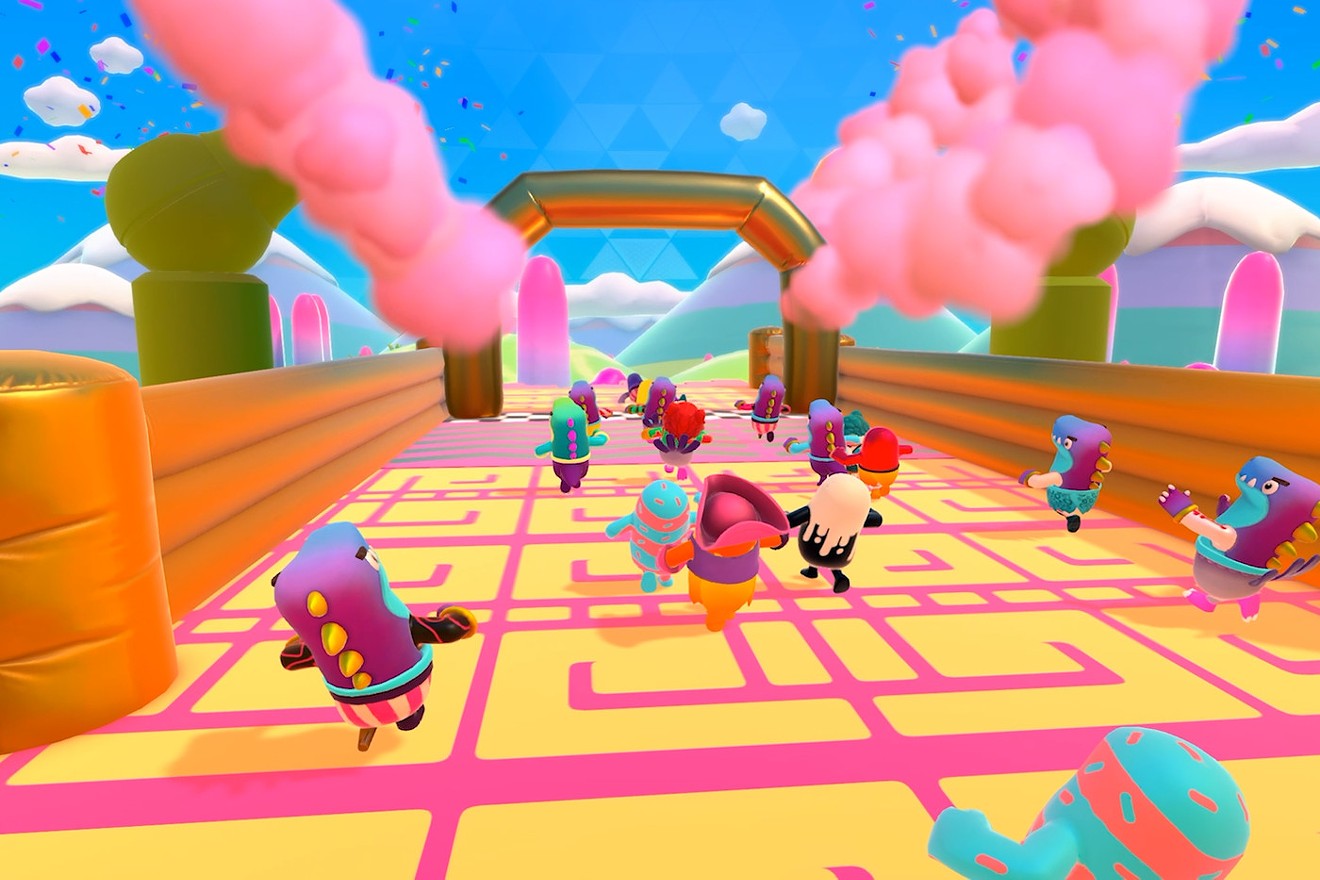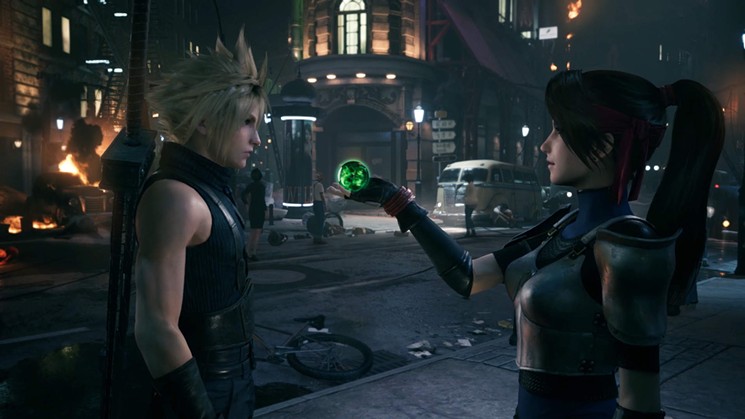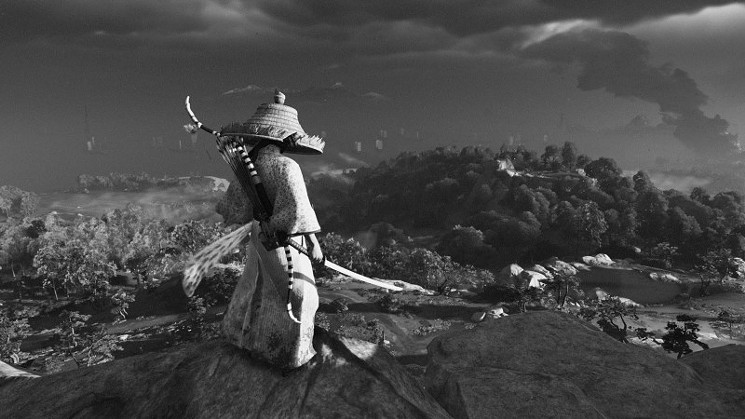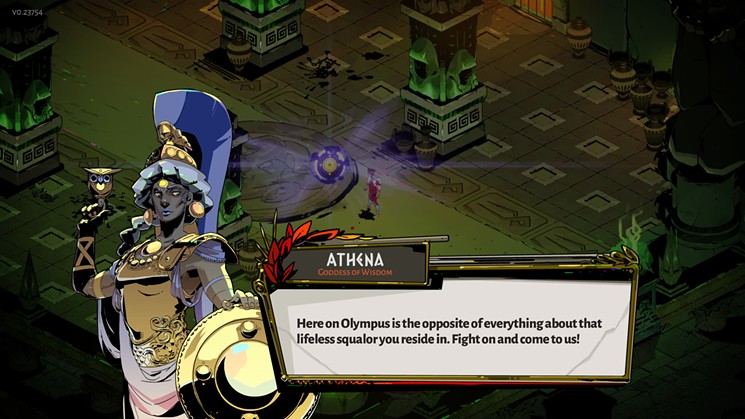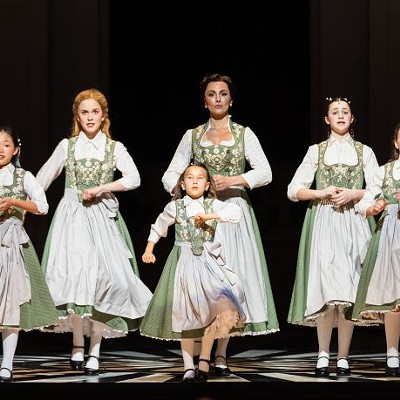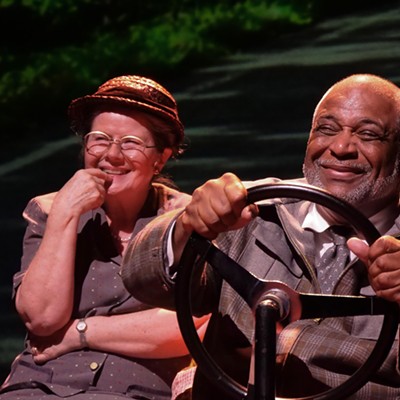Fall Guys
Fall Guys is perhaps the best example of what gaming has forgotten in the last several years. Players compete among a field of other online competitors in a series of whimsical contests based on physical-focused Japanese game shows like Wipeout as well as standard playground games like tag. Each round eliminates more players until one is crowned the winner.
In a market absolutely glutted with shooters, it dared to be an online multiplayer experience devoid of grit or guns. Similarly, while Fortnite and other competitive online experiences are constantly hitting you up for extra cash so you can buy cosmetics to impress other players, Fall Guys actually shows restraint. There are no predatory loot boxes, no pay-to-win mechanics, and while you can purchase in game currency the amount you earn from just playing is more than enough to purchase new costumes for the adorable Fall Guys. On that front, the company has eschewed the endless corporate tie-ins that, again, Fortnite, uses to increasing compulsory buying.
Playing it remains delightful. Losing is almost as much fun as winning thanks to the cartoonish physics of the jelly bean people getting knocked around by the environment. It’s impossible to be mad at other players when the characters are so adorable, although like any online multiplayer game there has of course risen a small class of trolls who are more interested in annoying you than playing themselves. Since you can jump easily into a game, and each game has only a small rotating selection of courses, there is almost no learning curve. It’s well-ordered chaos and an example of “play” being the focus of a game in a way so few games actually do these days.

This was so much more soothing than dealing with reality back in April.
Screen Grab from Animal Crossing: New Horizons
It’s not that the latest Animal Crossing is any sort of giant leap forward for the series or the life-sim genre as a whole. It’s just that as our kids (and, okay, us) were suddenly trapped in the house with the world scrambling to try and find something for us to do the game appeared and saved many a sanity.
As with other Animal Crossing games, you move into a location where Mayor Tom Nook has you work off your debt as you craft a home and interact with the villagers around you. There are a handful of new features such as an autosave, crafting, and decorating your home. There was also a lot less interaction with other villagers, but otherwise it was your standard Animal Crossing game.
Except, it was also the perfect game for the moment it came out. Millions of families were suddenly facing uncertain futures where schools were closed and work was moved home, if you didn’t lose your job in the initial crash that it. The vast majority of entertainment activities were shut down. All that was left was this funny little game where you could be in control of your environment by hunting bugs, fishing, and doing other small tasks that added up to shaping the island around you. It was a giant forced meditation for the country, and I can personally attest that it helped keep peace in my house. Like an electronic sand garden, it created a zone of tranquility, and for that alone it’s worthy of being one of the games of the year.
Final Fantasy VII Remake
The phrase “go big or go home” has never been more accurate than with one of the most highly-anticipated game remakes of all time. Final Fantasy VII came in like a wrecking ball, and the sheer balls-out audacity of the thing is a wonder.
In case you need reminding, this Final Fantasy follows Cloud Strife as he joins an eco-terrorist group in order to stop a corrupt energy company from sucking the planet dry. The remake encompasses the entire Midgard chapter of the original game, making it a dystopia vs. utopia set in the segregated city.
Playwise, the game seems to have finally perfected what Final Fantasies XII and XV were going for in their combat mechanics. The action is live, attacks are automatic, but there’s a robust system of dodges, abilities, summons, and spells that give players enough control to feel as if they are directing a truly cinematic battle. On that note, this game does boss fights better than any in the series have ever done. From the iconic Guard Scorpion fight in the beginning to the wackiness of the Hell House, VII Remake crafts fights that feel truly epic.
In a lot of ways, the game feels more like a prestige television adaptation of the original release than a true remake. Characters are given so much more development, and the excellent voice acting brings them to life. Pretty much every NPC who appeared in the original game now has motivations and back stories that flesh them out into full people. Making me care even more about these characters I have held in my heart for two decades in no easy feat.
Plus, the audacity of the game is to be applauded. Square Enix knows this is one of gaming’s sacred cows, and the possibility of this being the video game equivalent of Rise of Skywalker in an effort to please everyone was very high. Instead, game threw away its own manual and never looked back. How else would you get sequences like Cloud performing in a drag show rhythm game? Sure, I whine about how they handled certain characters’ deaths and director Tetsuya Nomura adding in a bunch of Kingdom Hearts nonsense, but even that took a lot of guts when a straight graphical overhaul would have made every fan perfectly happy. The fact that this game could be so different and still so the same made it worth the years-long wait, and also makes the next years-long wait for Chapter 2 unbearable.
Ghost of Tsushima
Ghost of Tsushima is not only a great game; it’s the capstone game of the entire console generation.
Set in feudal Japan, it follows the actions of Jin Sakai, a young samurai that is one of the only survivors of a Mongol massacre on the island. Left for dead but nursed back to health by a thief who needs his help, Jin rallies the nation slowly by becoming an Army of One and a living legend.
Everything I wanted The Last of Us Part II to be, Ghost of Tsushima actually is. Jin’s desire for revenge is intertwined with the need to free his people from the invaders. Like TLOU2, the game often muses on violence and whether the legion of people you have to kill in the game deserve it, but unlike TLOU2 Jin and his allies actually discuss in depth the various spheres of honor and need and how they clash in desperate times. This allows Ghost of Tsushima to be thoughtful where TLOU2 was often duplicitously preachy.
The gameplay is also just head and shoulders above other third-person action games. Jin has a variety of weapons at his disposal, and though the game will make you try all styles if you go through every sidequest you can also specialize. I’ve alternately played Jin as an unstoppable swordsman, a sniper, and a creeping assassin. Switching between all these roles is incredibly fluid and easy. The only awkward bit is that moving your armor and charms to accommodate a new style, such as melee damage and protection during a duel, can be a pain.
There are also no words to describe how gorgeously crafted the island is. You can eventually ride from one end to another in an unbroken horse trip, and the mountainous terrain is deceptively complex and labyrinthine. Tsushima acts and feels like a real place from beginning to end.
Special mention should be given to the game’s innovative Kurosawa mode. True, all it does is put the game in black and white and add a facsimile of film scratches on the screen, but once I turned it on I never turned it off again. By slightly fudging the graphics, the game actually starts to look just like an old samurai film in a way full-color photorealism never could. There were times I could have sworn I was looking at stills from Yojimbo instead of a game I was actually exploring. The game’s boldness of vision mixed with the absolute apex of this generation’s action game mechanics came together to make pure magic.
Hades
I have beaten Hades at least 50 times so far, and I will likely beat it 50 more because it is just that damned good.
Hades is about Zagreus, the angsty son of the god of the dead who desperately wants to break out of the underworld to find out what happened to his mother. Impeded by the dead and his father’s minions, he has to seek out the help of the Olympians in the form of various boons that enhance him (Zeus gives him lightning powers, Athena makes your armor stronger, etc.).
It’s a roguelike for people who hate roguelikes. The four levels of the underworld use procedurally generated rooms to create a randomized experience. Coupled with the fact that powerups are also randomized and the game encourages you to switch between the six available weapons by offering bonuses to a particular one for the run, and the game keeps you guessing.
Experimenting with play is one of the main reasons I can play Hades over and over again. Sometimes you run across combinations of weapons and powerups that complete break the game, like turning your bow into a rapid-fire machine gun that spits chain lightning that bounces around the room. If that gets dull, the game will eventually offer customizable challenges to make everything harder. That’s on top of the sidequests that earn you rewards so that you can decorate the House of Hades whenever you die and return to it.
The gameplay is almost immaculate, but Hades shines where few roguelikes ever do: in its story. Zagreus might be the best video game protagonist of all time. He is cocky and witty, but also unerringly kind and polite. He has deep respect for everyone he comes into contact with, even those who are in his way forward. His humility and respect for others, even when he makes a mistake, is something few game heroes ever have, let alone a hack and slash protagonist. The fact that voice actor Darren Korb sounds uncannily like Paul McGann doesn’t hurt either.
As the game progresses, and especially as you escape from Hades more and more, the lives of the various characters become more fully developed. Zagreus can pursue romantic connections, mend the broken relationship with his father, reunite sundered couples and finally, set his entire warring family on the path to peace. Coupled with the game’s extraordinarily diverse casting, including an LGBT main hero and many people of color, it’s a damn near perfect way to tell a story in a video game.
You can beat Hades in about 20 minutes once you get good enough at it. However, once you do you find yourself coming back to it again and again. There’s always one more nugget of story to ferret out, one more cool combination of upgrades to try. It’s the best title to come out in 2020 by a long shot, and I hope it’s the template of gaming for years to come.

